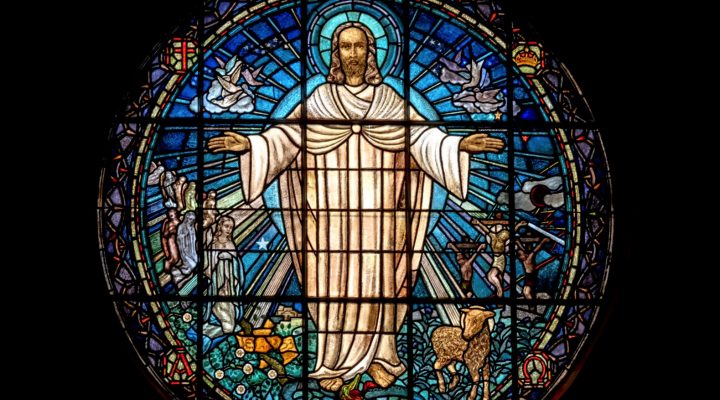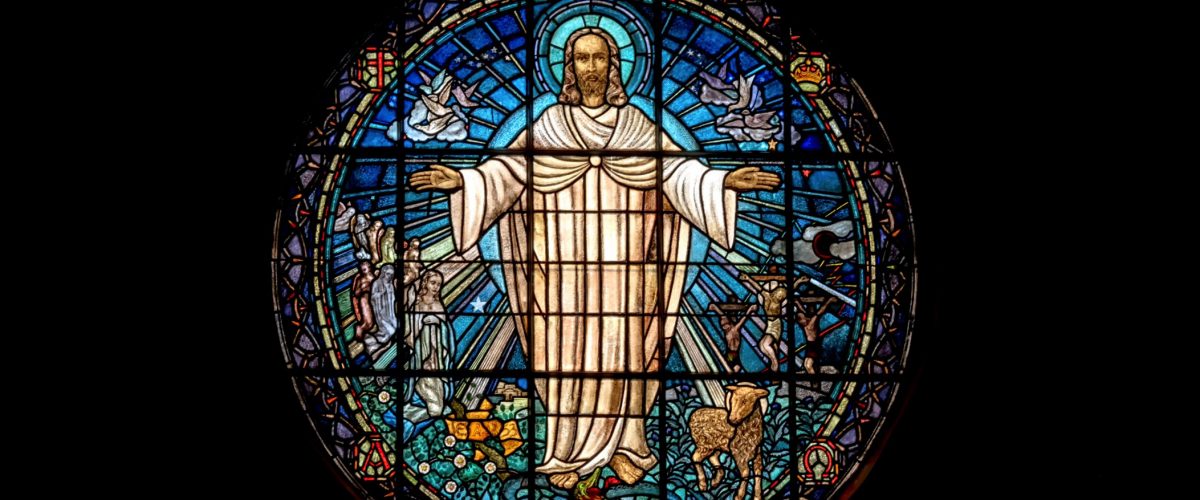In a recent editorial for Baptist Press, professors Malcolm Yarnell and Steve McKinion presented a candid assessment of the theological landscape within their midst: “We believe the greatest challenge facing Southern Baptists today comes not from confusion over church offices but from teachers who distort the entire and equal divinity of Jesus Christ.”
I agree with their assessment. This applies not only to Yarnell and McKinion’s specific free-church fold — which has needlessly squabbled for years over the role of women — but also nearly every conservative group in the evangelical landscape.
Much ink has been spilled on these issues in both the academy and on various online evangelical forums. This column is not intended to be an exhaustive academic analysis but a brief primer for everyday people who may not be conversant in these concepts, categories and controversies.
In short, theological developments within the past two decades in both evangelical institutions and churches present the greatest threat to orthodox Christianity since the time of the arch-heretic Arius. They have been animated by two recurring ancient errors that have found inroads in some of America’s largest theological institutions.
“Theological developments within the past two decades in both evangelical institutions and churches present the greatest threat to orthodox Christianity since the time of the arch-heretic Arius.”
Their names are subordinationism and kenoticism.
Subordinationism
Subordinationism teaches the Son of God is inferior to the Father in nature and status.
It is beyond dispute that the incarnate Son of God, the God-Man, Jesus Christ, submitted to and delighted in the will of his heavenly Father. But more recently, some evangelical theologians have begun claiming Jesus Christ is submissive to the Father in eternity.
Modern teachers of this peculiar doctrine include several theologians at conservative evangelical institutions, many of whom are complementarian in their understanding of gender relations. It is not necessary to list these teachers by name, for many gifted writers have done so already. A quick search of the phrase “eternal functional subordination of the Son” will yield a flurry of results.
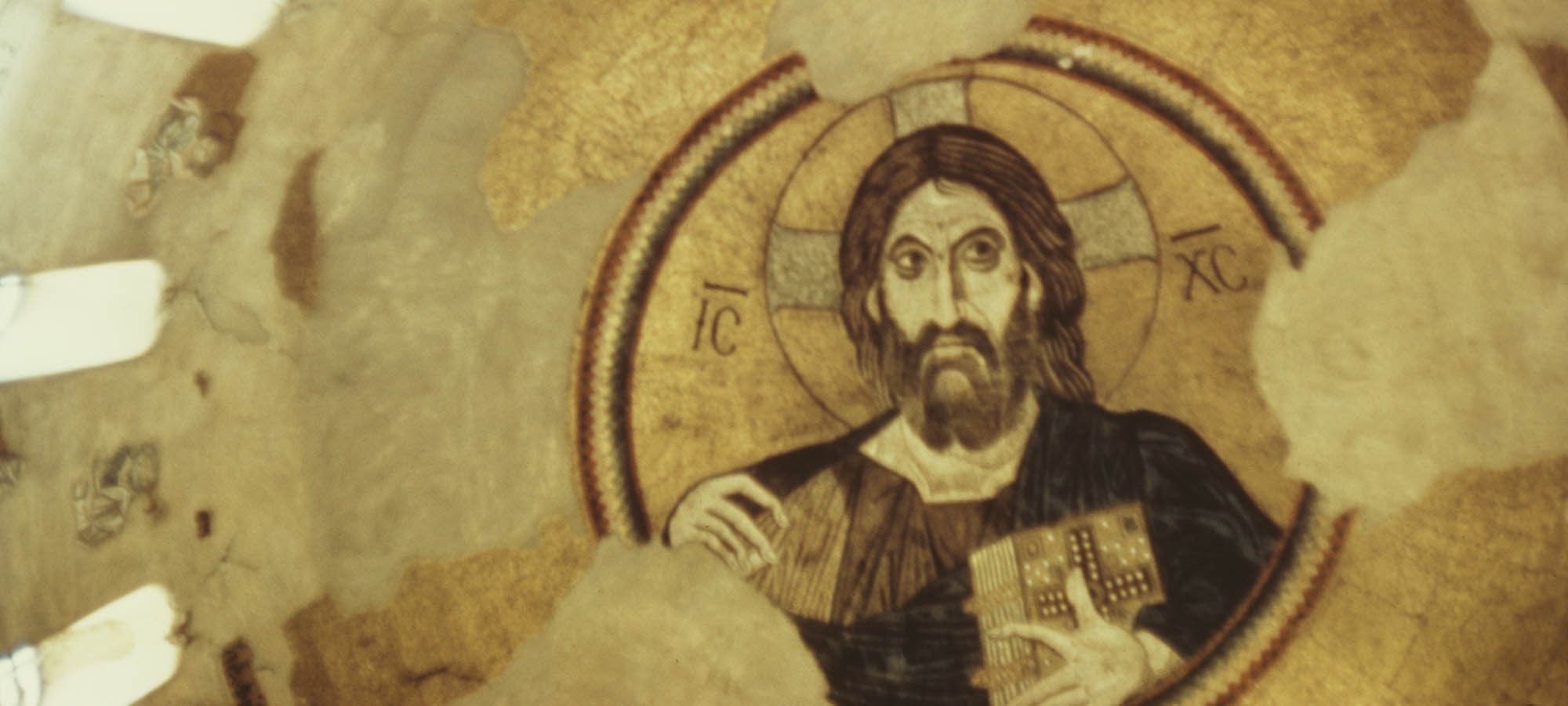
A religious mural in the Daphni Monastery, an 11th century Byzantine monastery in Chaidari, a suburb of Athens, Greece, circa 1960. The letters ‘ICXC’ are a Christogram or abbreviation of the Greek words for ‘Jesus Christ’. (Photo by Harvey Meston/Archive Photos/Getty Images)
The doctrine of the Son’s eternal submission to the Father does not comport with the unbroken teaching of the apostles recorded in Scripture and clarified in the creeds, councils, patristics and confessions.
The Scriptures teach Jesus Christ is the eternal Word of God (John 1:1-3). He is both Son of God and God the Son who took on human flesh for our redemption. John’s Gospel articulates this truth this way: “No one has ever seen God. The one and only Son, who is himself God and is at the Father’s side — he has revealed him” (John 1:18).
The Nicene-Constantinopolitan Creed confesses Jesus Christ as “the only begotten Son of God, begotten of the Father before all worlds; God of God, Light of Light, very God of very God; begotten, not made, being of one substance with the Father, by whom all things were made.”
Contrary to the claims of subordinationist theologians that “the Son is the Son because he submits to the Father’s will,” the Scriptures clearly teach the Son of God “became obedient” to the Father in his incarnation (Philippians 2:8). Obedience and submission are attributes he assumed in his humanity; they are not essential to his nature.
The eternal authority of the Father and the Son are one, as St. Gregory of Nyssa notes: “The attribute of kingship denotes all dignity; And ‘our God,’ (Scripture) says, ‘is king from everlasting.’ But the Son, having all things which are the Father’s, is himself proclaimed a king by Holy Scripture” (On the Holy Trinity, and of the Godhead of the Holy Spirit).
“The moment a person claims submission is essential to the Son’s nature, they have left the historic Christian faith. This is not exaggeration.”
The moment a person claims submission is essential to the Son’s nature, they have left the historic Christian faith. This is not exaggeration. The Athanasian Creed reminds us that “in this Trinity none is afore or after another; none is greater or less than another. But the whole three persons are coeternal, and coequal.”
Kenoticism
This word comes from a form of a Greek word transliterated as “kenosis” in Philippians 2:7. There it is said the Son in some way “emptied himself.”
Retired theology professor Roger Olson, defined Kenotic Christology as “the idea that the Son of God, God the Son, the Word/Logos, voluntarily decided to ‘set aside’ (or retract) his attributes of glory and power in becoming incarnate as the boy and man Jesus Christ and function throughout his life on earth as a human being, not using his attributes of glory and power or even knowing about them except through revelation from his heavenly Father and the Holy Spirit.”
Likewise, Al Mohler, president of Southern Baptist Theological Seminary, recently said Christ “did give up some of the privileges of that deity for the time of his earthly ministry.”
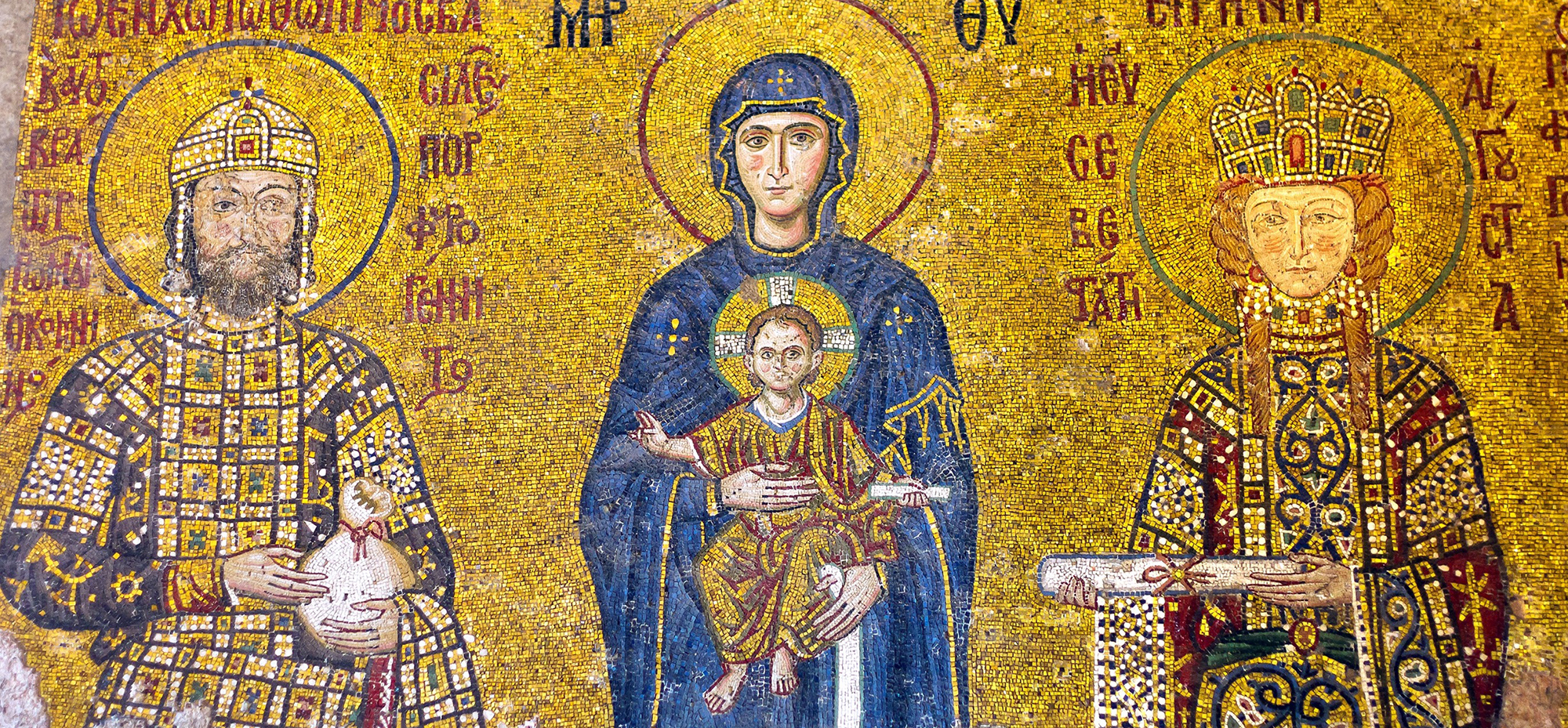
Virgin Mary holding the Christ Child, Byzantine mosaic art from Interior of Hagia Sophia Museum in Istanbul, Turkey
There are two primary issues with kenotic Christology. The first is that it misunderstands the nature of Christ’s “emptying.” The second is that it misunderstands the Son’s hypostatic union.
First, regarding the Son’s “emptying,” the Scriptures do not teach that Christ gave up his divine glory, power or authority. Instead, they affirm that although Christ existed “in the form of God,” he “did not consider equality with God as something to be exploited” (Philippians 2:6).
The Son of God did not relinquish any of his divine power and glory. In the words of St. Hilary of Poitiers, the Son “restrained himself” in such a way so that what he already possessed both by nature and right as the God-Man was not used for his own advantage, but for ours.
St. Hilary continues: “He did nothing detrimental to his own power, since even within this lowliness of his self-emptying he nonetheless used the resources of the evacuated power within him” (On The Trinity 12.48).
“How is it then possible for the Son to know everything if he retracted his divine attributes and nature?”
Christ’s disciples correctly confessed they believed the Incarnate Son knew “everything” (John 16:30). How is it then possible for the Son to know everything if he retracted his divine attributes and nature?
Second, kenotic Christology fails to appreciate the uniqueness of the Son of God’s two natures of divinity and humanity being united in his singular person. This doctrine is called “the hypostatic union.”
Christians do not confess the Son’s incarnation saw divinity taken away, relinquished or diminished. Instead, humanity was assumed.
The Athanasian Creed reminds us Christ is “one, not by conversion of the Godhead into flesh, but by taking of that manhood into God.”
This is nothing less than the plain teaching of the Scriptures.
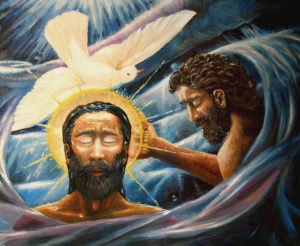 John writes in his Gospel that the eternal Word “became flesh and dwelt among us. We observed his glory, the glory as the one and only Son from the Father” (John 1:14). Christ himself taught he was in the Father and the Father was in him (see John 14:7-11). The Apostle Paul affirms “God was pleased to have all his fullness dwell in” Christ, and “the entire fullness of God’s nature dwells bodily in Christ” (Colossians 1:19, 2:9).
John writes in his Gospel that the eternal Word “became flesh and dwelt among us. We observed his glory, the glory as the one and only Son from the Father” (John 1:14). Christ himself taught he was in the Father and the Father was in him (see John 14:7-11). The Apostle Paul affirms “God was pleased to have all his fullness dwell in” Christ, and “the entire fullness of God’s nature dwells bodily in Christ” (Colossians 1:19, 2:9).
The confession of the formula from the Council of Chalcedon also states: “The same Christ, Son, Lord, Only-begotten, (is) to be acknowledged in two natures, inconfusedly, unchangeably, indivisibly, inseparably; the distinction of natures being by no means taken away by the union, but rather the property of each nature being preserved, and concurring in one person and one Subsistence, not parted or divided into two persons, but one and the same Son, and only begotten, God the Word, the Lord Jesus Christ.”
St. Athanasius writes in Against the Arians, “We do not conceive the whole Word himself to be flesh, but to have put on flesh and become man” (see 2.44, 47). These natures are “united in one single person; yet each nature retains its own distinct properties” (Belgic Confession XIX).
Even still, someone may object and ask, “How can Christ experience both the limitedness and frailty of our human nature while also having within himself the fulness of deity, eternity, infinity and all other attributes proper to God’s essence?”
The answer is: “It is true that the Godhead is illimitable and omnipresent. (But) it must necessarily follow that the same is beyond the limits of the human nature he assumed, and yet is nevertheless in this human nature, and remains personally united to it” (The Heidelberg Catechism, Q&A 48).
The Scriptures, creeds, patristics and confessions are not asking us to accept the illogical or impossible.
The law of noncontradiction states that a proposition and its negation cannot be true at the same time and in the same manner. It would thus be a violation of the law of noncontradiction to affirm that any affirmation, A, is equivalent to the negation of that affirmation, −A. Thus, the equation A = −A is false.
But with respect to the hypostatic union, Christians maintain something altogether different: Jesus Christ = A + B.
Divinity is not the negation of humanity, nor is humanity the negation of divinity. Rather, the nature of humanity and divinity both subsist inseparably, but indivisibly, in the one person, Jesus Christ.
The consequences of these errors
Soberingly, the Athanasian Creed announces a curse of damnation on those who do not adhere to orthodox teaching: “He therefore that will be saved must think thusly. … This is the catholic faith, which except a man believe faithfully he cannot be saved.”
“The moment Jesus Christ is stripped of his uniqueness, power and authority, sinful and power-hungry people often seek to take his place.”
So, it is not unkind to suggest this issue goes beyond mere theological abstraction. It touches on the very salvation of those who teach these peculiar doctrines.
This is not in any way to suggest all teachers of subordinationism and kenoticism are damned. Yet it is to say those who, with full knowledge of their error, knowingly persist in it to the detriment of Christ’s glory accrue for themselves the curse of the Scriptures (Psalm 2:12).
Yet I believe something more sinister lies beneath these fresh (but ancient) attacks on Christian teaching on the person of Jesus Christ. The moment Jesus Christ is stripped of his uniqueness, power and authority, sinful and power-hungry people often seek to take his place. Self cannot sit on the throne if Christ is truly Lord.
We must reject the diminishing of Christ’s uniqueness by those who seek to subvert his reign and claim power for themselves — power that sinful people long to wield against the vulnerable, including the unborn, children, women, racial and sexual minorities, and others.
God the Son, our Lord Jesus Christ, is the sole source of the church’s life and proclamation. The church must ensure that he is not displaced by any other person, ideology, power, event or secular creed.

David Bumgardner
David Bumgardner is a writer, minister, graduate student, and former BNG Clemons Fellow from North Texas. He is a graduate of Southwestern Seminary’s undergraduate program and a licensed evangelist in the Anglican Mission. Connect with him at his website: www.davidbumgardner.org.

